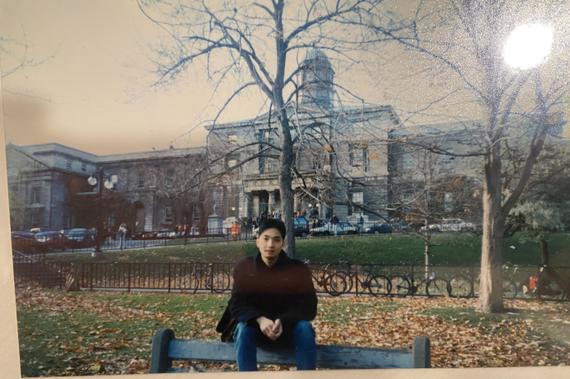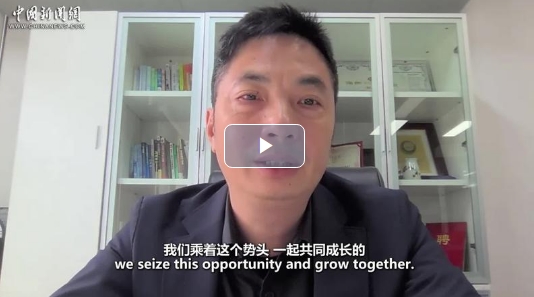Insights | Macao thrives 25 years after return to motherland: entrepreneur
(ECNS) -- Dec. 20 marks the 25th anniversary of Macaos return to the motherland. Twenty-five years on, the city has undergone a remarkable transformation under the "one country, two systems" policy.
Macao entrepreneur Elwin Ho, a witness to this evolution, attributes the city’s progress to the nation’s robust development. “I feel that Macao will develop even better in the future,” he said in a recent interview with China News Network.
A more beautiful Macao
Born in the 1970s, Ho was obsessed with technology since he was a kid. To pursue his sci-tech dream, he left Macao for the Chinese mainland, earning a degree in a computer science from Peking University. He later continued his studies in the United States after graduating in 1996.

“When Macao returned to China in 1999, I was working in Silicon Valley. I believed that the people of Macao would enjoy greater opportunities,” he recalled.
When asked about the biggest changes in Macao, his immediate response was that the city has truly become more beautiful. “My family lived right across from a vegetable patch, however, Macao has transformed so much after its return to the motherland. I couldn’t even recognize some places when I first came back,” he said.
In 2009, Ho founded Pachira, an artificial intelligence enterprise in Silicon Valley. Seeing the potential of the domestic market, he decided to come back to establish a Beijing office in 2010.
Over the past 25 years, Macao has experienced its fastest economic growth in history. Data shows that the region’s GDP has skyrocketed more than sevenfold, from $6.5 billion in 1999 to $47.4 billion last year.
Ho also highlighted Macao’s success in diversifying its economy, particularly in the fields of education, tourism, and sci-tech innovation. “Since Macao’s return to the motherland, the tourism industry has flourished, reaching a world-class level. The city’s internationalization has become more evident,” he said.
“Bridge” of the future
In recent years, Macao has actively played its role in advancing the development of the Guangdong-Hong Kong-Macao Greater Bay Area (GBA). Under this framework, the integrated development of Hengqin and Macao has been promoted.
In 2018, Pachira moved its headquartered to Hengqin with tremendous support from the local government. Three years later, an international operation center was launched in Macao.
According to Ho, Macao can leverage its advantages and act as a bridge to promote more efficient economic cooperation and cultural exchanges between the GBA or the whole country and Portuguese-speaking countries as well as serving as a gateway for the Belt and Road Initiative partner countries.
“Macao offers abundant financing channels, while the Chinese mainland boasts a deep talent pool. It is also very convenient for both domestic and international experts to come to Macao or Hengqin, creating a favorable environment for both sides to develop more sci-tech products,” he explained.
Looking ahead, Ho hopes for more collaborative projects between the Chinese mainland and Macao, particularly in culture and sci-tech innovation.
